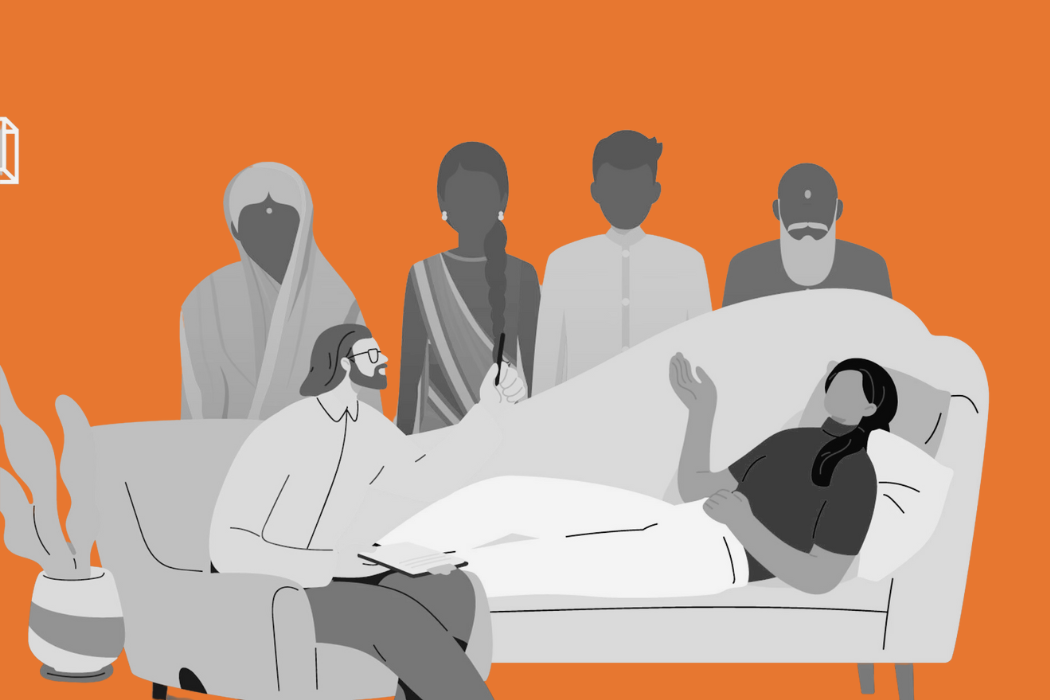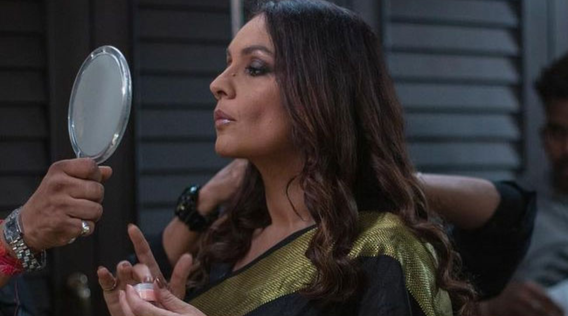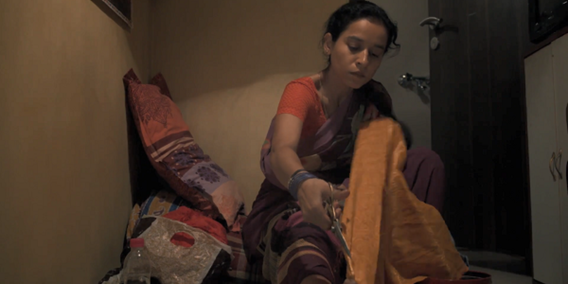Why Talking About Our Parents Is So Hard
As a therapist, I've lost count of how many times I've heard clients say, "I had a normal childhood" or "Things were okay growing up." It's almost always followed by a quick dismissal, a shrug, and sometimes a subtle shift in their chair. When this happens, I know we've just touched something important. We don't realize how loaded these questions are for most of us: "What was it like growing up?" "How has your relationship with your parents been?" Have you ever wondered why these questions make us clam up, dismiss them, or just shrug and say, "No, there's nothing there"? It should be fairly simple, right? Much of who we are—the way we love, trust, fear, or cope—is influenced by our formative experiences, mainly those with our parents, our first attachment figures. So why aren't we more enthusiastic about exploring these relationships in therapy? In some cases, I've seen real conversations about parents emerge only after clients have been in therapy for over two years—when they're feeling better, more emotionally regulated, and somewhat more in control of their lives.
Why Does Talking About Parents Feel So Vulnerable?
Recently, my client Shraddha—whom I've worked with for four years—was confronting her discomfort with feeling aligned in her emotions. She wasn't dissociating anymore. She could feel her happiness in real time. And it scared her. She called it childish, immature. I was confused because, to me, it seemed like a perfectly appropriate response. As we explored what was bothering her, she realized that if happiness could surface so easily, then anger could too. And that terrified her. She traced it back to being eight years old, just uprooted from the place she knew, sick with malaria, and on the receiving end of her mother's anger. Her adult self could now find the words to describe the confusion and vulnerability she felt as a child—that her mother could hurt her when she was already hurting. She had witnessed how she shut down, and now she was afraid that if she felt her anger fully, she might unleash it in the same way. Even as she permitted herself to explore her feelings, I could see her struggle. I sat with her as her fear moved into anger, and her anger dissolved into deep sadness for her childhood self—the one she couldn't protect, who couldn't speak up, and who internalized the dismissal of her feelings to the point that her fear of lowering her guard was hidden even from herself. Shraddha's story is just one example of why the relationship with our parents is one of the most complicated—and tender—things we ever discuss in therapy. Because as much as we're talking about them, we're also talking about ourselves: about who we are, our deepest conflicts, and the painful process of how we came to be this way and what it cost us. We've been dependent on our parents to meet our needs for safety, security, and connection. It's the little things—how they responded when we cried, when we needed soothing and connection—that form the basis of how we respond to ourselves and what we expect from the world around us. This early bond doesn't just teach us how to relate to others. It also serves as the foundation for the relationship we build with ourselves, the one in which our self-worth is encoded. When our physical needs are met adequately and our emotions are welcomed and tended to, we internalize that we are worthy, we matter, and the world is safe. We learn that we can trust people and find comfort in them. However, when care is inconsistent, absent, or a constant source of fear, we internalize something different entirely. We learn that we're not important, that closeness is dangerous, that our needs don't matter unless we perform, and that we need to be "good" to be loved. Through such experiences, we discover that the only safe space we can find is within ourselves. We learn to please the people around us at the cost of our own needs and authentic selves. We learn to anticipate the needs of our environment and cater to them as a trade-off for safety—and the price is our authenticity.
What Patterns Do We Develop to Cope?
Ashwini is a talented, empathetic young woman who excelled in college and is recognized and appreciated in every workspace she's part of. Her friends adore her and rely on her—she holds their pain with care and compassion. Yet when it comes to her own struggles—surviving childhood abuse and navigating a difficult relationship as a caregiver to her alcoholic father—she faces them alone. Accepting support feels foreign to her. "Not a part of me," she says. The idea of leaning on someone else stirs discomfort, almost guilt. She can be the sounding board for her friends when they share their guilt and shame with her, but she finds it hard to tell them what she's experiencing herself. Now, between the demands of work and the energy she pours into her friendships, she feels burnt out—yet still can't shake the pressure to keep giving. Ashwini's story isn't rare. Our identity begins to form with how we are seen—or unseen—by our caregivers. We learn early whether our needs are welcome or whether they're an inconvenience. Some of us grow up feeling ashamed for being "too much," "not enough," or believing we have to be someone else entirely to be loved. So we perform. We become high-achieving adults excelling in what we do, avoiding deeper connections, and avoiding letting ourselves be truly known because we feel small inside. We become good listeners, caring friends, and shoulders to lean on. We're always available, over-apologizing, hard workers for whom leisure feels undeserved or even guilt-inducing. We immerse ourselves in work or pursue emotionally unavailable partners, unconsciously recreating the internal reality we carry while searching for that elusive validation we can't let ourselves have unless we've proven our worth. These patterns—the pleasing, the over-functioning, the self-abandonment—become part of us. They become aspects of ourselves that we've never questioned because "this is who we are." This is what has been appreciated, applauded, and encouraged by the world around us.
What Are We Really Confronting?
Coming back to Shraddha, as she permitted herself to feel her anger, a deeper, more poignant thought popped up. She remembered that as a child, she learned to empathize with her mother's behavior and understood that it could have come from the overwhelm and loneliness she faced as a single parent. That understanding overrode her anger so they could have a cohesive relationship at the time. Today, she realizes she was forced into the role of the empathetic parent that was missing from her life. Now, as an adult in a healthy relationship, it confuses her when her partner doesn't shut her down and lets her express her anger without lashing back at her. She wonders, "If my partner can respond with such care, why couldn't my mom when I was just a kid?" I had no words. I could only hold space for her as her grief finally surfaced. When we really talk about our parents, we confront the difficult reality of why we are the way we are: that we were never truly unconditionally loved, and therefore, we struggle to truly love ourselves unconditionally. We're confronting not only the broken relationship we carry with our primary caregivers but also the fractured relationship we have with ourselves. But there's more to it than that. Often hidden even from ourselves, we carry the struggle between quiet rage and love for them. There's anger for the ways they hurt us, neglected us, didn't see us, while simultaneously feeling grateful for what they did give, however flawed or incomplete. It's incredibly difficult to reconcile these two opposing forces: love and pain. Sometimes we think that to hold one, we need to let go of the other. To hold both can feel deeply disorienting. The people we were most vulnerable with both nurtured us and hurt us, and we had no say, no control in the matter. They shaped us in ways we didn't choose and left us carrying wounds we couldn't name. As adults, we still feel the aftershocks of that early hurt, even when we can't always trace where it began. Trying to hold all of it—the love we felt, the pain we carry, the vulnerability we once offered—can feel overwhelming and deeply confusing. But it allows space for grief to emerge. We start to mourn the childhood that was lost, the child we couldn't protect.
Why Do We Feel Guilty About Examining Our Childhood?
In many cases, we know they did their best. They loved us, sacrificed for us, and provided what they could. We might feel like we're betraying them or being ungrateful if we start to unpack our childhood experiences and their impact on us. Are we becoming the insolent, ungrateful child they may have once—out of their own pain—accused us of being? But healing doesn't require betrayal. It requires honesty. As we allow ourselves to see clearly how we were hurt and how we now inflict similar hurt on ourselves, we slowly begin to take responsibility for our healing. As we let ourselves feel the grief of what was lost and gradually mourn the child who couldn't fully be, we come to terms with the reality that nothing could have been different. It's no one's fault, and even though we feel angry and it seems so unfair, the only person who can pick up the pieces now is us.
What Is the Path Forward?
To truly heal, we have to stop waiting for the past to have been different. We have to stop protecting the people who hurt us at the cost of abandoning ourselves. We need to learn how to nurture the parts of us that were neglected, protect the parts that felt unsafe, and become the caregivers we needed but didn't have. Not out of resentment, but out of love—for the child we were, for the adult we are, for the life we still have ahead of us. This isn't betrayal. This is reclamation: the slow return to ourselves. It's the beginning of a more honest relationship with our past, our pain, and the truth that healing doesn't erase what happened, but it does change what we do with it. And in that change, there is power—not to rewrite the story, but to write what comes next, with care, with awareness, and finally, with choice.
Open Hard Conversations—Gently
What Happens Over A Meal? is our psychologist-designed conversation game that helps families and partners meet each other with honesty and care. Use it to explore stories, boundaries, and needs—without defensiveness.
Explore What Happens Over A Meal?







